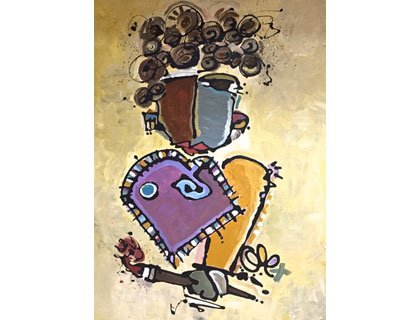BALTIMORE — The primary mission of our criminal justice system is to protect the public’s safety. Accomplishing this goal leaves little room for implementing programs designed to mend and revitalize the lives of individuals caught in the prison system’s maze of bureaucratic mandates. This is especially troublesome for juvenile offenders, who are themselves often the innocent victims of violence, dysfunctional households and poverty. Kids who get into trouble with the law are not just at the mercy of the juvenile justice system. Sadly, the needs, hopes and dreams of these children are often ignored by a society lacking resolve to ensure every child has the opportunity to grow up feeling loved, wanted and protected.
Last week Education Matters began a series of articles about A Mother’s Love (AML) a non-profit organization dedicated to bringing art-based educational programs and experiences to students at their first encounter with the juvenile justice system. Using subjects like art, music and creative writing, AML’s goal is to reach beyond the false bravado to soften tough exteriors of children forced to fend for themselves to survive and replace trouble-making activities with the academic confidence they will need to become productive, self-sufficient adults.
Last year, artist Alex Benitez joined AML and began working with Baltimore teenagers on probation resulting from social, anger or school disciplinary issues. Alex’s paintings have sold in galleries in Miami, New York, San Juan and Baltimore. He brings the kind of energy, kindness and caring to his students needed to remove their distrust of authority and dissipate the malaise that settles over children who have witnessed life’s dark side. If you read carefully Alex’s heart-rending stories and look closely at the original artwork it inspired, you will be moved by the humanity of children whose futures rest on our resolve to free them from the classroom to prison pipeline. Alex, using initials to protect the privacy of minor students writes:
When I first heard about a boy who was into arts and would like to be in the program, I was very excited. The day B. walked in the room, I saw this 17-year-old kid with the build of a linebacker and the face of a baby. As he sat down, he placed his beat up backpack on the table and pulled out a pencil and a notebook and started to draw.
We immediately bonded talking of his sketches and quickly started working on projects together. Even though we enjoyed working together, I could always see pain in his eyes. A sort of pain that you might be used to see on a grown man, not in a teenager who is just starting at life. We never really talked much at class, it was like if we communicated through the work we were doing. There was so much being said through our mutual silence and concentration, that since he seemed to like it that way, I went along.
As I was heading to class one day, I see B. come out fuming from the office of his parole officer. As I walk past her (his parole officer), she looks at me and says: “good luck today.” As we sat down in the room, I told B. that we didn’t have to do anything today, but just talk. I was surprised when he started telling me the heartbreaking story of how his mother gave him up when he was born and grew up with his aunt. He had to take care of his 9 brothers and sisters. He also shared why he was on probation this time. It was right then when I understood just how tough some of these kids have it and that it’s not just about offering knowledge and support, but to help provide a “blanket” of support at all levels.
Then suddenly, B. stopped going to class. The counselor told me that he was going to enter a new type of therapy, including medication, at a treatment facility. I miss having class with B. The other day, one of the judges emailed me to tell me that B. was doing better and had told him to say hi to me.”
Next week: Student “C” is profiled
Jayne Matthews Hopson writes about educational matters because in the words of Epictetus, former slave and Greek Stoic philosopher “only the educated are free.”
